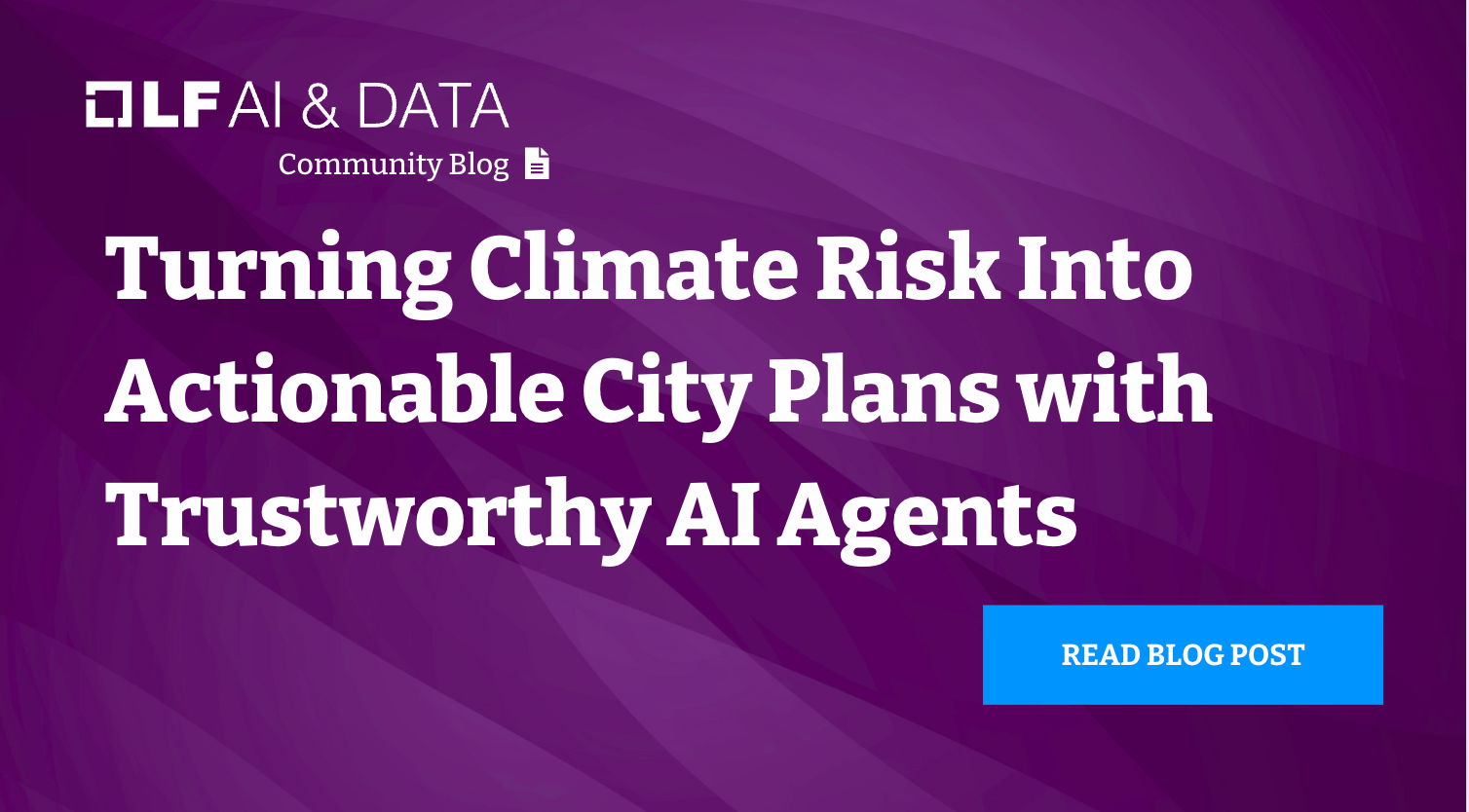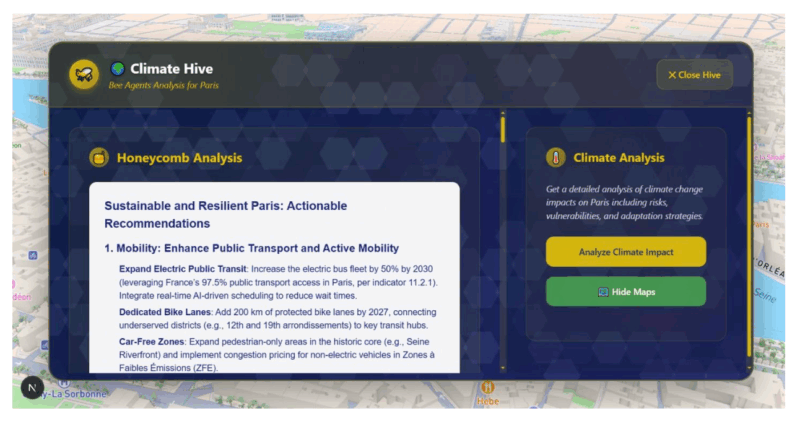
How do you turn climate risk data into clear next steps a city can actually act on?
Wavestone set out to answer that at the IBM Watson TechXChange hackathon. They built Hive.ai, an open source platform that uses BeeAI — an LF AI & Data project — to generate city-specific climate action plans aligned with the UN Sustainable Development Goal 11 (sustainable, safe, resilient cities).
Who’s involved
- Wavestone
Wavestone is a global consulting firm specializing in cybersecurity, data and AI, digital strategy, and large-scale IT transformation. - BeeAI
BeeAI is an open source multi-agent AI framework under LF AI & Data. It’s built for reliability: agents reason, collaborate, follow constraints, and produce predictable, auditable output. BeeAI is governed openly at the Linux Foundation to ensure transparency and stability.
The challenge
The hackathon asked teams to build agentic AI solutions that make cities more inclusive, safe, resilient, and sustainable. The hard part wasn’t “be creative.” It was:
- Make AI agents that behave consistently
- Generate real, defensible recommendations
- Support accountability in areas like mobility, energy, green space, and public safety
That’s where BeeAI’s guardrails and governance model mattered.
The solution: Hive.ai
Hive.ai https://github.com/Paulhb7/climate-ai-hive-sdg11turns climate and urban data into concrete action plans for a specific city. It identifies risks, maps vulnerabilities, and recommends what to do next — not in theory, but in practice.
Under the hood, Hive.ai uses three BeeAI agents:
- ClimateAnalyst
Analyzes climate models and highlights key risks (flood zones, heat exposure, etc.).
- UrbanAdvisor
Proposes tailored interventions in areas like mobility, public green space, energy efficiency, waste, and citizen engagement.
- SDG11Validator
Checks every proposed action against UN SDG 11 targets and suggests improvements to keep plans aligned with resilience, safety, and inclusion.
Because BeeAI enforces rules and constraints for each agent, cities get consistent, explainable output — not guesswork.
What this looks like in practice
Hive.ai can generate a report for a city (for example, Paris) that says:
- Here are your top climate vulnerabilities
- Here are targeted policy actions you can take now
- Here’s how each action maps to SDG 11
This creates something city teams can take into planning meetings, budget conversations, and public accountability reviews.
 Visual report example of the city of Paris, delivered by agents.
Visual report example of the city of Paris, delivered by agents.
Where it’s going
Hive.ai was demoed at IBM TechXChange in Orlando and submitted to the 2025 Call for Code Global Challenge, one of the largest global “tech for good” initiatives.
The next step is scaling: helping municipalities use Hive.ai as an internal planning assistant, comparing vulnerabilities across regions, and reusing proven interventions across cities.
This is exactly the work LF AI & Data is here to support: open, transparent AI systems that solve real problems for real communities.
- Watch the demo.
- Explore BeeAI.
- Get involved.